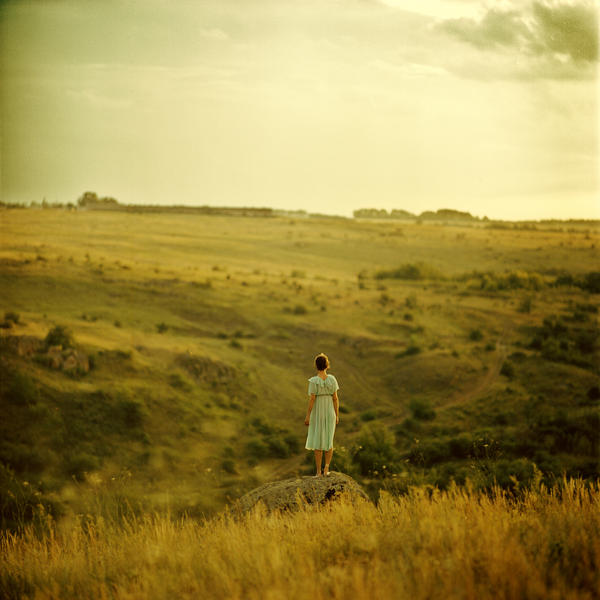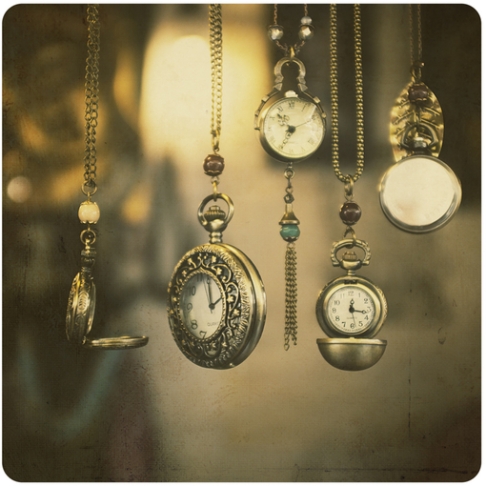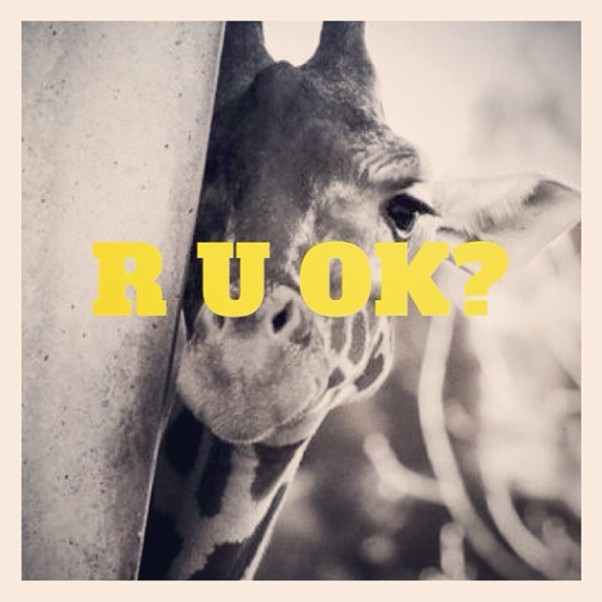In the depths of depression, my brain seems to entirely rearrange my own perceptions of time, blurring days into weeks or even months, but occasionally providing such a vivid, searing memory that I can almost hear the clock ticking off the seconds.
In the midst of Packing, I have two distinct memories that fit into this curious latter category.
The first, perhaps not coincidentally, relates to an innocuous wall clock that had adorned three apartment walls from the first year of our relationship. Gifted to us by my best friend and her partner at the time, the clock in question was of a simple, modern design.
In my early days of packing – those rare few early days when I was lucid enough to be able to strip everything off the walls, all my posters and prints and artwork, I hesitated when I came to “our” wall clock.
I still can’t fully explain the hesitation. Yes, it had been a gift to “us,” and it took pride of place in every apartment we called home. At the same time, it was a gift from my closest friend, whilst not a single friend or relative from “his side” had ever sent us a card or even brought over their own snacks or drinks, let alone kindly giving us something, anything, we would love enough to display in our home.
I felt a righteous ownership. And yet, I hesitated.
Some part of me knew that it would be the kind of bizarre item J would contest.
I was right.
I was leaving 95% of my belongings behind, including many items J and I had bought together but also a number of items that I had owned previously. I just wanted to be gone.
But that clock, for some reason, was mine.
He noticed its absence immediately. He walked into the apartment, surveyed the blank walls, and asked where “his” clock had gone.
I informed him that I’d already packed it.
He locked his eyes on me, his lips in a grim, straight line, and asked “Why?” in a cold and unfeeling voice.
“My friend gave it to us, so I’m taking it,” I stated calmly.
“It was given to us. Why do you get to keep it?” he inquired.
I asked what his friends or family had given us in the many years we’d been together.
He was momentarily silent.
Then, with a powerful sense of conviction and entitlement, he informed me that I wasn’t allowed to take something if he didn’t have an immediate replacement. The irony of his losing me clearly didn’t occur to him in that moment. The logic of someone making far, far above the average annual salary being unable to replace a $70 clock was completely ignored.
I dug in my heels. I still don’t know why it even mattered. As I’m writing this, I can glance over and see the clock in question hanging on my wall, and I’m still slightly baffled as to how such an insignificant item became such an issue.
I’m sure there’s a metaphor or an allegory I could make here. Something about how even when I felt like I was losing everything, I was still holding onto the things that mattered, whether I knew they mattered or not. Perhaps an allusion to the fact that J was losing someone he could never replace, and was instead grasping onto an easily replaced item.
Frankly, I don’t know. I didn’t even realise at the time that I still had any fight left in me, so it continues to perplex me why I spent what little energy I had on such an inconsequential thing. And yet occasionally, I’ll glance over at that clock and be strangely proud that I was even capable of standing up for myself at that stage, so deep into my depression.
As that clock relentlessly continued to tick away, I sunk even deeper into my crippling depression, my “reinforcements” arrived, and my belongings were packed into precious few cardboard boxes. To the best of my knowledge, J stayed elsewhere for this period.
With one exception.
I remember nothing else of that day. Whether the boxes were packed, whether my mother was there, whether my flights were booked.
I remember nothing but J walking through the front door, dropping his bag and keys on the floor, walking straight towards me where I was inexplicably hovering between the bedroom and the living room, and taking me into his arms.
He held me gently, and he cried.
In retrospect, that moment compels me to defend him. It prompts me to clarify that he was never an inherently bad person, he was just incredibly bad for me. He was a good person unexpectedly trapped in a bad situation, one that he couldn’t fix, much to his frustration.
At the time, however, I simply I hugged him back, somewhat automatically, and remained blank. I felt a slight twinge of regret and sadness, mostly that I felt so little. I wasn’t physically capable of crying. I couldn’t share his grief or loss. On the whole, I felt nothing.
In between what can only be described as weeping, he meekly asked if we could remain friends.
“Of course,” I said, and he pulled me closer and cried some more.
As soon as he let me go, some time later, my memory fades back into an opaque fog. I don’t know if we even said goodbye, or if I left that minute or that day or weeks later.
But that last memory of J, of his vulnerability, his unguarded, soft side – I wouldn’t say it makes me miss him, nor the good times we spent together (of which there were many, despite what I’ve shared here). But it makes me appreciate those times, appreciate the many lessons learnt, and perhaps even more importantly, to appreciate the people in my life who make me feel important and loved every single moment of every single day, the way that J simply couldn’t.
As is my usual habit on the internet, I made the mistake of searching the #ruokday hashtag on Twitter, and subsequently came across a cynical subset of people who questioned the very worth of such a question, let alone a day dedicated to asking it. This is my response.
I remember the day perfectly, all these years later. I was 15. Long blonde hair, blue eyes, fair skin, straight white teeth. A cheerleader, a class captain. Liked and respected.
And desperately depressed.
I didn’t know it at the time. Even as a teenager, I thought I was able to intellectualise my depression and write it off as nothing more than a pesky teenage phase. Long before “emo” became part of the social vocabulary, I simply assumed I was part of the emotional teenage masses.
Months slid by, my A-level grades gradually declined, and slowly but surely I started eating less, talking less, caring less. Eventually I was joining my many friends at recess and sitting in complete silence, without a word or a bite. The world continued around me.
I didn’t think anyone noticed. I didn’t want anyone to notice. I wanted to be invisible, because that’s what I felt I deserved.
I didn’t deserve any modicum of respect. I didn’t deserve popularity. I didn’t deserve to be a class captain or a cross country team member or a cheerleader. I didn’t deserve concern.
At one stage, I vaguely recall my homeroom teacher taking me aside and asking if everything was alright. I smiled and nodded and said I was fine. I know he wasn’t convinced, but there was little else he could do. As class captain, I was fulfilling everything that was expected of me, crossing every T and dotting every I.
Weeks later, I stood outside my physics class, bulky textbooks clutched to my chest, as I stared into the distance thinking of nothing in particular. The sky was a brilliant blue, the bricks of my single-storey 1960s physics lab were their usual dull red, and my eyes were as vacant as they’d been the last few months.
“Are you okay?” asked a girl I was only fleetingly familiar with until that moment. Snapped out of my daze, I looked at her as if I’d never seen another human being, paused momentarily, dropped about $300 worth of textbooks, then burst into tears.
Until that point, not only had I not realised that I wasn’t okay, but most importantly, I hadn’t realised it mattered. I truly didn’t believe anyone cared, because I didn’t think I mattered.
If ever I’ve had a light-bulb moment, that was it. After many months of my closest friends being scared and unsure of me, of why I’d changed so dramatically, it took a near-stranger to ask that one simple question and change my life.
As far as I’m concerned, this is there inherent and undeniable strength regarding RUOK Day.
My closest friends at the time knew there was something seriously wrong, but without any form of permission to ask me if I was okay, implicit or otherwise, they said nothing. They were still concerned, they still loved me, but they needed an external power to let them know it was okay to show their concern.
Even still, asking the question is just the beginning. Those asking the question in earnest need to be ready to hear the honest answer, which could so easily range from casually flippant to terrifying or heart wrenching.
Outside that physics lab, so many years ago, I wasn’t okay. It took someone to ask me outright for me to realise I wasn’t. Perhaps not incidentally, that person has been my best friend from that day forth.
And yet, when a select few people asked me yesterday if I was okay, my unintentional response was to cry.
I guess that means I’m still not okay.
That’s not the fault of those who asked me if I was okay.
Nor is it the fault of those who didn’t.
But the message of RUOK Day is that asking the question and truly listening to the response is priceless. It could greatly improve someone’s life, or even save it. The power of those 4 little letters need not be constricted by the designated day of awareness – that’s the entire point. The permission, even the incentive, to ask that one question on that one day, then empowers you to continue to ask it the remaining 364 days a year.
If you think RUOK Day isn’t worth it because it’s only one day, one question, then you’re not only missing the point of the movement – one of continued diligence and engagement, but you’re also missing the point of the power of that one simple question.
It may not mean much to you, but those 4 letters saved my life.
I very much doubt I’m alone.






